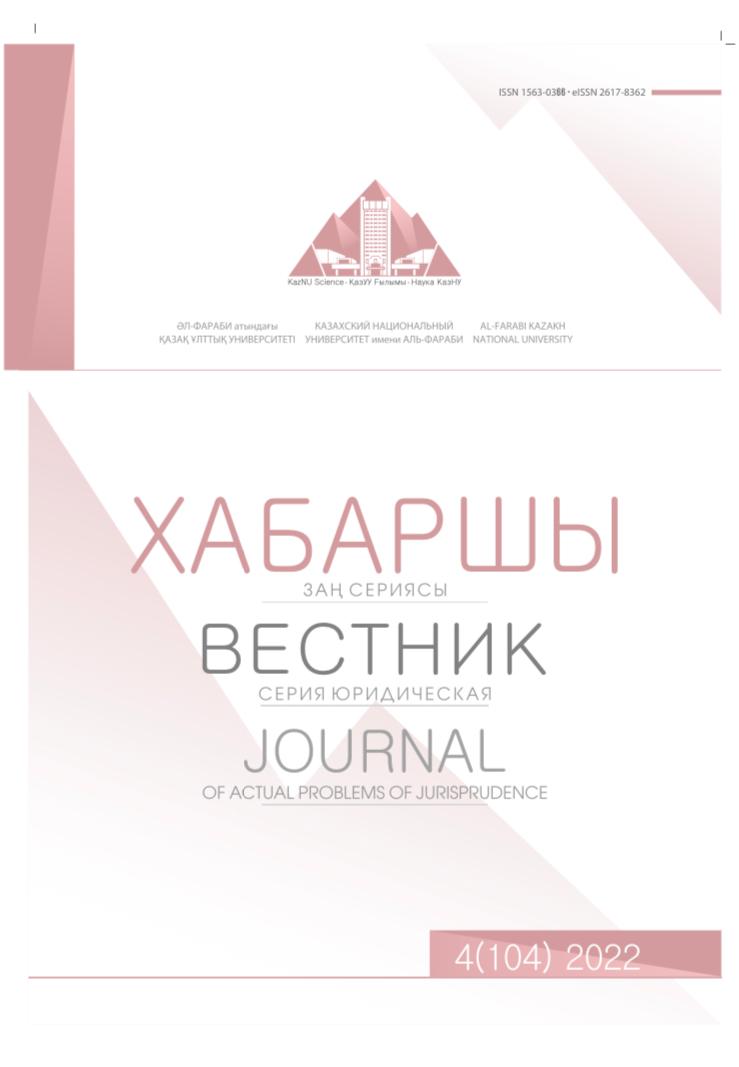On the issue of improving the mechanism for protecting the interests of the child in cyberspace
DOI:
https://doi.org/10.26577/JAPJ.2022.v104.i4.05Abstract
The relevance of the topic is associated with special attention to the topic of bullying of children, including through social networks. The amendments and additions to the current legislation are aimed at punishing bullying, as Kazakh statistics show an unprecedented increase in harassment and bullying, leading to mental trauma and suicide among children and adolescents.
The choice of the research topic was due to the need to analyze the norms introduced into the legislation on cyberbullying of children and to predict their effectiveness. It was necessary to critically analyze the domestic approach in comparison with the most effective foreign practice.
It is concluded that most countries have already taken appropriate measures at the end of the twentieth century and actively counteract the harassment of children and adolescents in the networks. The interest is also due to the fact that Kazakhstan has updated a number of state programs regarding the rights of the child. At the same time, the analysis of these documents shows the insufficiency of the state response.
The subject of the study is the norms of the legislation of the Republic of Kazakhstan and countering and punishing child harassment through social networks.
The aim is to critically analyze the amendments and additions made to the legislation of the Republic of Kazakhstan on the rights of the child in the field of cyberbullying and make recommendations on improving state response measures.
The significance of this study is the justification of the need to distinguish between the concepts of cyberbullying and cyberstalking and the need to analyze the latter as a common phenomenon in modern realities.
Keywords: children's rights, protection of children's rights, cyberbullying, bullying, cyberstalking.



